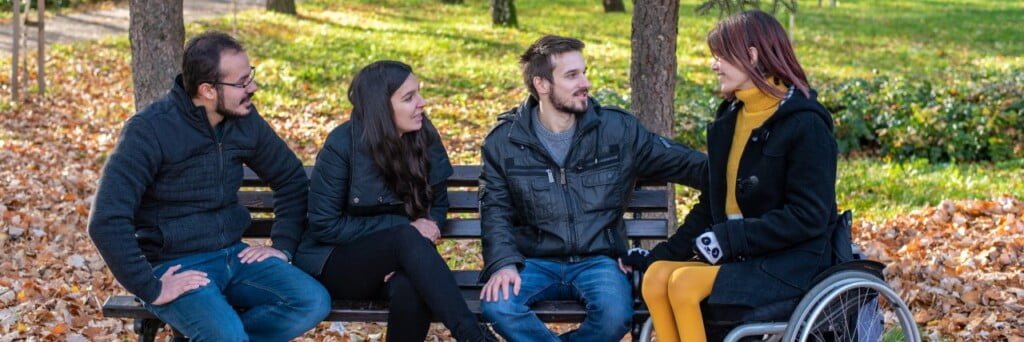Teach Your Children About Ableism

When faced with a new situation or something unfamiliar, children can be impulsive. The best way to avoid this reaction is to prepare them and teach them about people’s disabilities in advance.
You’re preparing your child for the world’s differences and diversity by teaching them empathy. Fighting ableism early creates kinder children.
Discussing sensitive topics like ableism can be difficult if you lack the words. However, you must talk to your family about disabilities to develop empathy. Even if you don’t have all the answers, you can start these conversations.
1. Have Honest Talks
Talk to your children about disabilities. You can use someone you know as an example to help kids understand. If you don’t know anyone with a disability, emphasize that disabled people have a lot in common with everyone else.
You should explain to your children the importance of understanding and accepting differences. In what ways does the world make it easier for people without disabilities to get around and move forward? Assert that disability is neither good nor bad, but simply unique. Your children will learn that ableist statements are not acceptable.
2. Inclusion Places
Supporting a restaurant or business that offers options for people with disabilities, visible and invisible, sends a message to your family. To explain why you chose a particular company, you can say that they care about everyone, regardless of disability status.
When planning a vacation, choose a destination that welcomes people with disabilities. This gives your money to a good cause and teaches your children how to take action for equality.

3. Make the Most of Your Experiences
A child’s curiosity should never be stifled. Someone with a noticeable impairment in a store is certain to draw your child’s attention at the wrong time. Your reaction to this event can educate your child about how to regard limitations. Instead of stating, “That’s not pleasant,” explain what you know about the handicap.
If you don’t know the answer or want to stimulate more discussion, tell your child that you may both question the individual about their condition. If your youngster approaches someone and asks gently about their wheelchair, they may talk about it. If the person says no, remind your youngster to respect their boundaries and locate the information elsewhere.
4. Consider Your Language Carefully
Every parent knows that children catch up on everything. Use words that you wouldn’t want your kids to repeat. When discussing a sensitive subject, choose your words carefully and use the correct vocabulary. Your kids will eventually repeat your words, and hopefully educate their peers as well.
5. Use the tools that education
Book or television, your children are likely to consume media every day. Using it for good and teaching your children something instructive will develop empathy and teach them about people’s differences.
In 2015, Julia, a character with autism, was added to “Sesame Street.” Autism can now be discussed directly and indirectly in the show, thanks to the arrival of this character.
Similarly, books may teach your children about many disabilities and help you communicate effectively with your children. There are resources to help you teach kids about the world and other people.
Teach Your Kids to Love Others
Education is the key to preventing ableism. If a child has questions about disabilities, do your best to answer them and seek out additional information and advice. Teach your children about ableism and how to combat it so they can enter the world with kindness.

